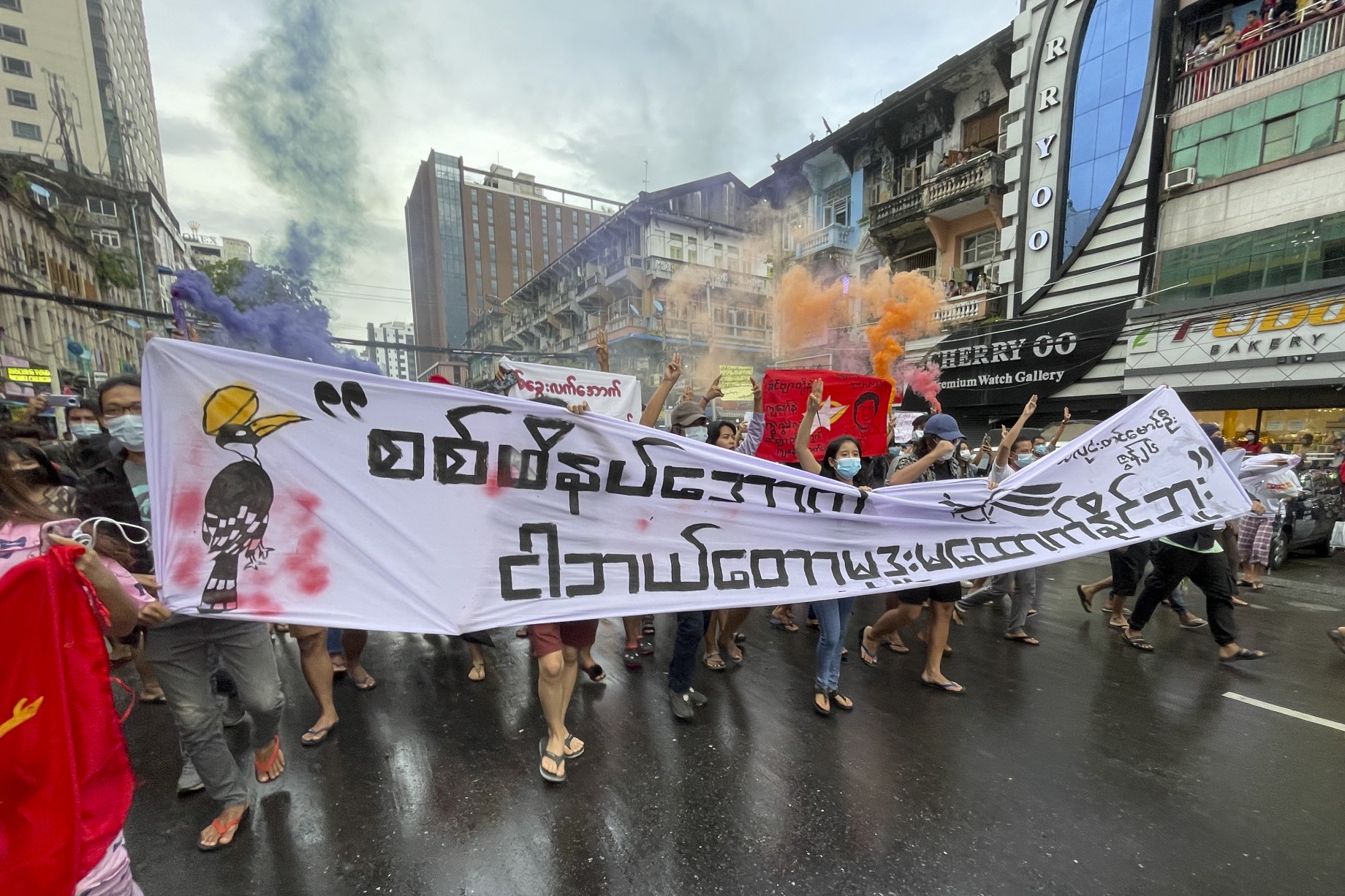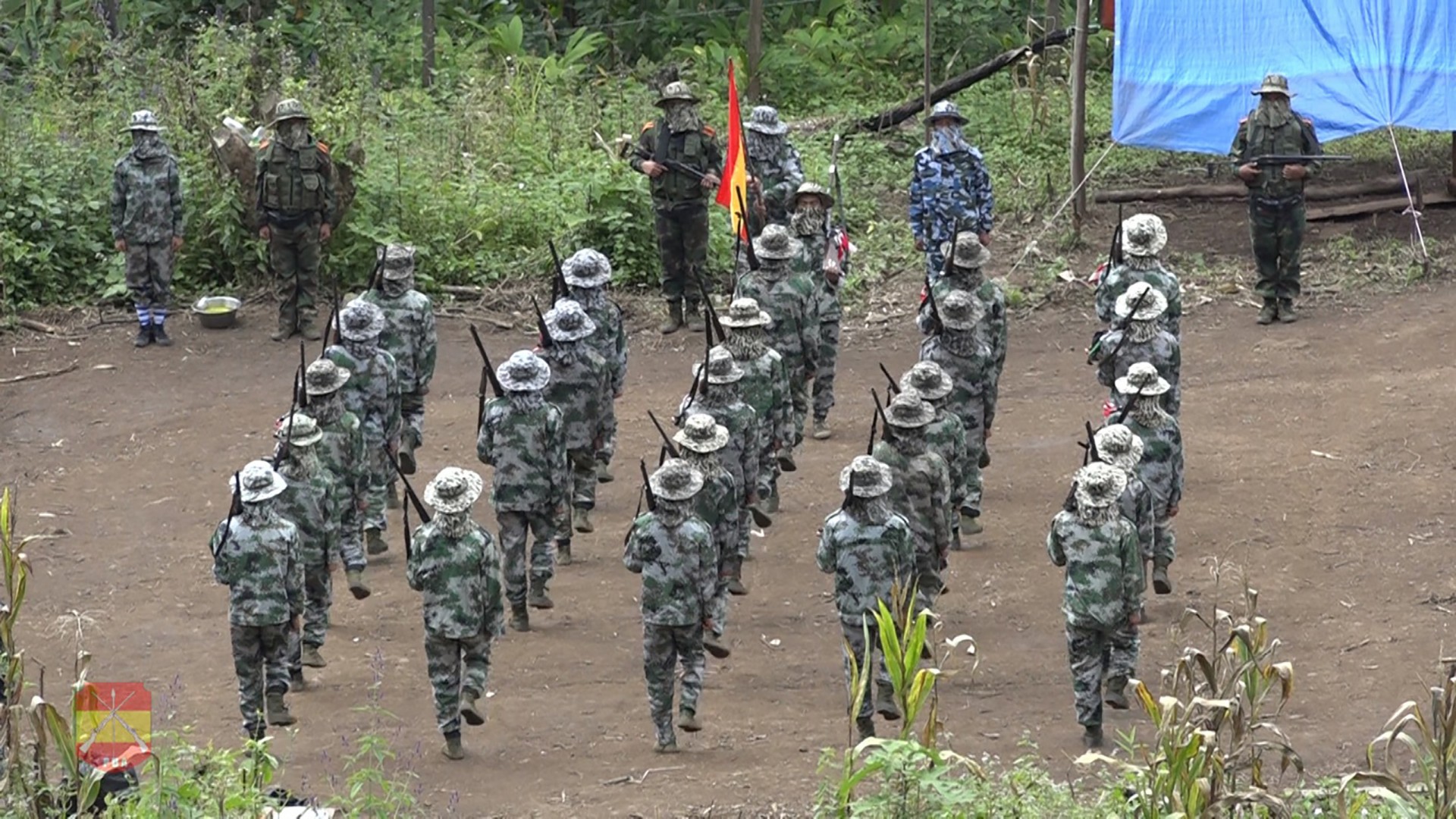
The National Unity Consultative Council (NUCC), a body formed to bring together forces opposed to the coup regime that seized power in February, said it would continue its efforts to broaden its alliance against Myanmar’s junta.
The group—a coalition of elected MPs, ethnic armed organizations (EAOs), and other anti-regime groups—held its first online press conference on Tuesday to outline its goals.
Focussing on a message likely to appeal to groups still sitting on the sidelines of the movement that it seeks to spearhead, the NUCC said that beyond removing the junta from power, it also had a roadmap for establishing a federal democratic system.
It also stressed that it would not be dominated by any single organization or individual as it sought to reach both its long- and short-term objectives.
“Our organization will not be led by a single person. It will be more like a collective leadership,” said Min Ko Naing of the 88 Generation Peace and Open Society activist group, one of the participants in Tuesday’s press conference.
Currently including eight EAOs and several political parties, as well as a number of armed resistance groups that have emerged in the wake of the coup, the NUCC said that it was in discussions with other groups that have yet to join the coalition.
Moe Thu, of the NUCC’s General Strike Committee—one of 28 sub-groups formed to coordinate its various activities—said that the NUCC was looking at ways to amend its Federal Democracy Charter ahead of the first “people’s congress” slated for December.
That charter, first published by the Committee Representing Pyidaungsu Hluttaw (CRPH) on March 31—the same day it abolished the military-drafted 2008 Constitution—has been key to efforts to bring more groups on board with the NUCC’s agenda.

Khun Myint Tun, the vice president of the Pa-O National Liberation Organization, told Myanmar Now that he has taken part in talks about the charter, but declined to say if his group would be joining the NUCC.
“We’re not picking sides, but we will only operate on the basis of equality and autonomy,” he said.
Sai Nyunt Lwin, the vice-chair of the Shan Nationalities League for Democracy, was similarly noncommittal when asked if his party was prepared to become part of the NUCC.
“We’ll meet one way or the other if we’re travelling in the same direction,” he said.
Aung San Myint, who attended the press conference as a representative of the Karenni Consultative Council, urged the country’s various ethnic armed organizations and political parties to join the NUCC, saying that “it is now the perfect time to pressure the coup regime both politically and militarily.”
He acknowledged, however, that a number of factors would likely make some groups less receptive to this appeal.
“It depends on the political agendas, the underlying conditions, and the geographical conditions of each organization,” he said.
One sticking point appears to be the fact that the Federal Democracy Charter does not leave much room for real power-sharing, despite the NUCC’s pledge of collective leadership.
According to Moe Thu, the charter confers authority on the CRPH—comprised of elected MPs from the ousted civilian government—in legislative and judicial matters, while the broader-based National Unity Government (NUG) has executive power during the current revolutionary period.
Seeking to overcome this hurdle, Min Ko Naing said that the NUCC was prepared to be flexible.
“We have to keep an open mind so that any organization can join us whenever they want to do so,” he said.
“We can only win if we have as many coalition forces as possible. We are willing to welcome anyone who would like to study us and then join us anytime,” he added.



